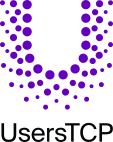What will end-users do, if they are asked to trust someone to control their heating, storage battery use, or dishwasher? The importance of this question is growing as grid operators and aggregation firms use automation to improve flexibility in power grids increasingly characterised by volatile renewable power generation and distributed sites of generation and storage. With automation technologies, home appliances can be pre-programmed and directly controlled during peak demand periods to reduce load or to help with grid congestion in case of a production surplus without putting strain on end-users to provide this flexibility manually. The question under which conditions households and communities would give their implicit approval (a social license) to such automated demand side management has been researched by the Users TCP Task “Social License to Automate”.
The follow-up Task “Social License to Automate 2.0” aims at developing a more in-depth and expanded understanding of how the granting of a social license to automate can be supported in a more inclusive and community-oriented manner. To do so, the role gender and diversity factors play in consumption flexibility and how they interact with engagement approaches will be explored in Subtask 1, technical and social factors that impact the contribution potential of energy communities will be analysed in Subtask 2 and flexibility markers in load profiles and associated data quality standards will be identified in Subtask 3. The Task, which will run for 24 months, will provide flexibility profiles, an expanded definition of the social license concept, and guidelines for policy and industry stakeholders.

The Task is led by the AIT Austrian Institute of Technology with the participating institutions EI-JKU Johannes Kepler University Linz – Energy Institute and FHTW University of Applied Sciences Technikum Vienna from Austria, UCC University College Cork from Ireland, TUTELFT Delft University of Technology from the Netherlands, NTNU Norwegian University of Science and Technology from Norway, Chalmers University of Technology from Sweden and UIG University of Geneva from Switzerland.
During the virtual kick-off meeting that took place on November 23rd and 24th, 2022, the experts from the six involved countries worked on developing a joint vision and shared their goals and perspectives for the output and impact of the Task. Further discussed was collaboration within the Users TCP and other TCPs and affiliated researchers systematically throughout the Task runtime, as well as next steps concerning Subtask-specific work and planning of stakeholder involvement and dissemination. The task team looks forward to working together towards the joint goal of providing better guidance on how to recruit and support citizens in their participation in automated Demand Side Management programs in an inclusive, community-oriented, and scalable manner.

